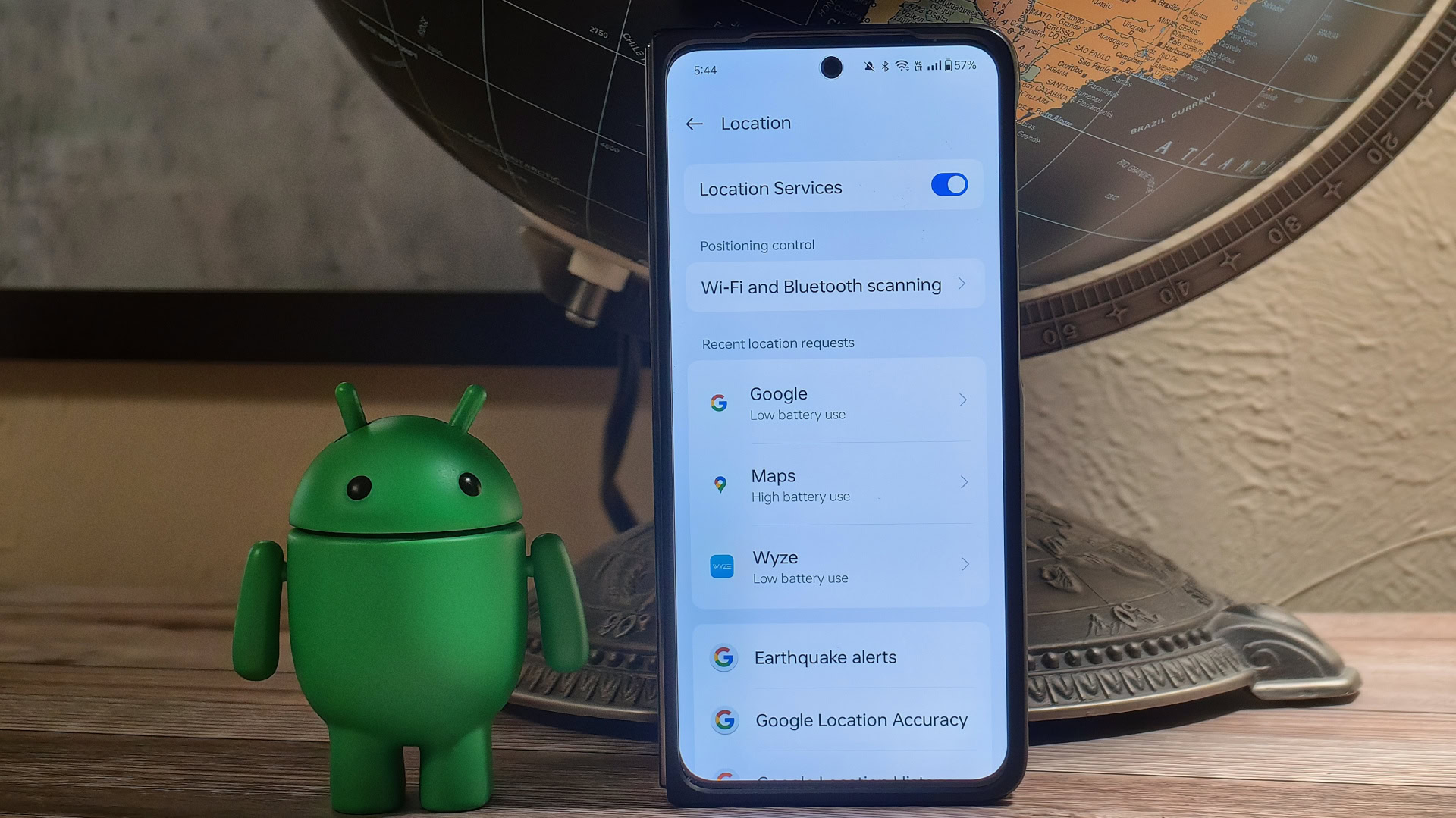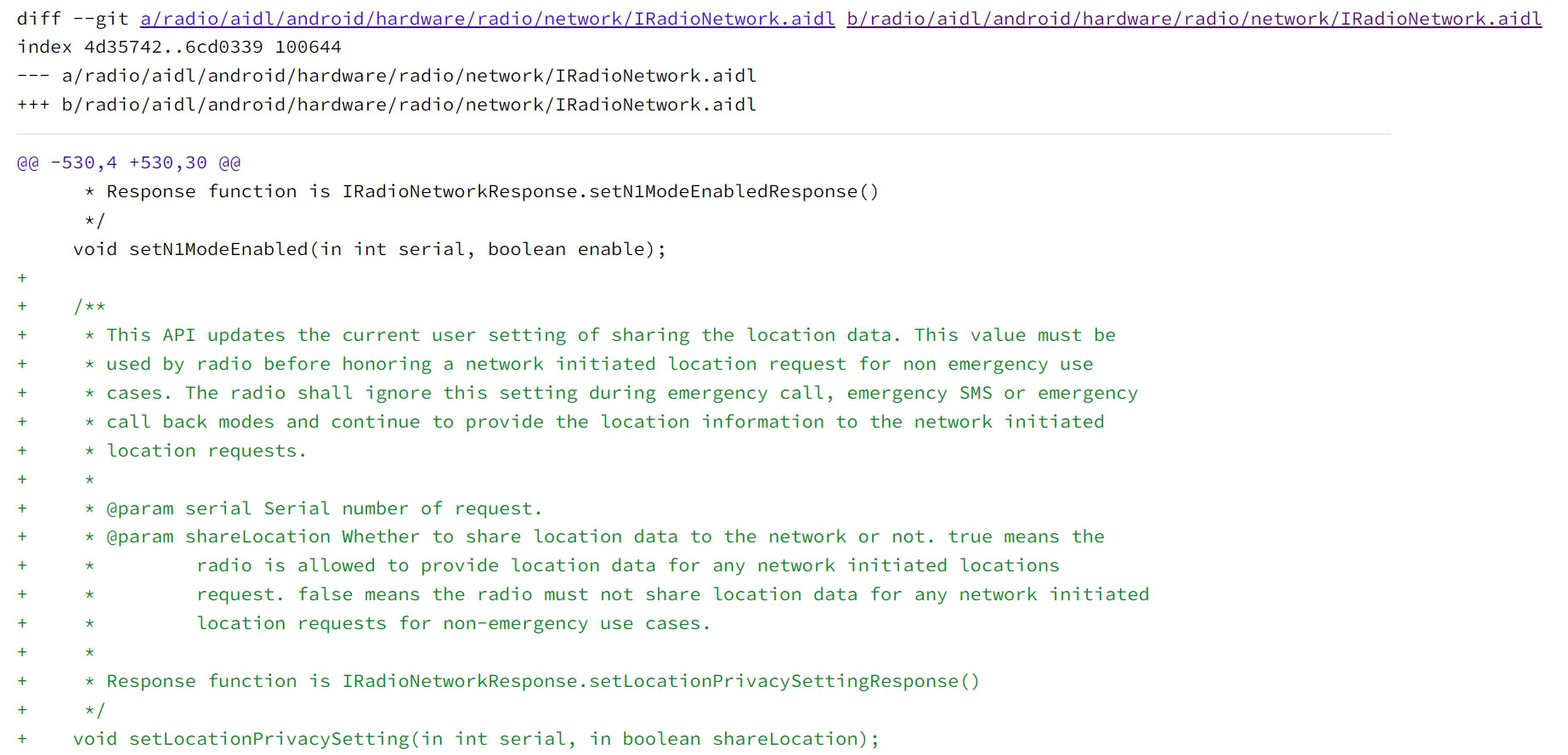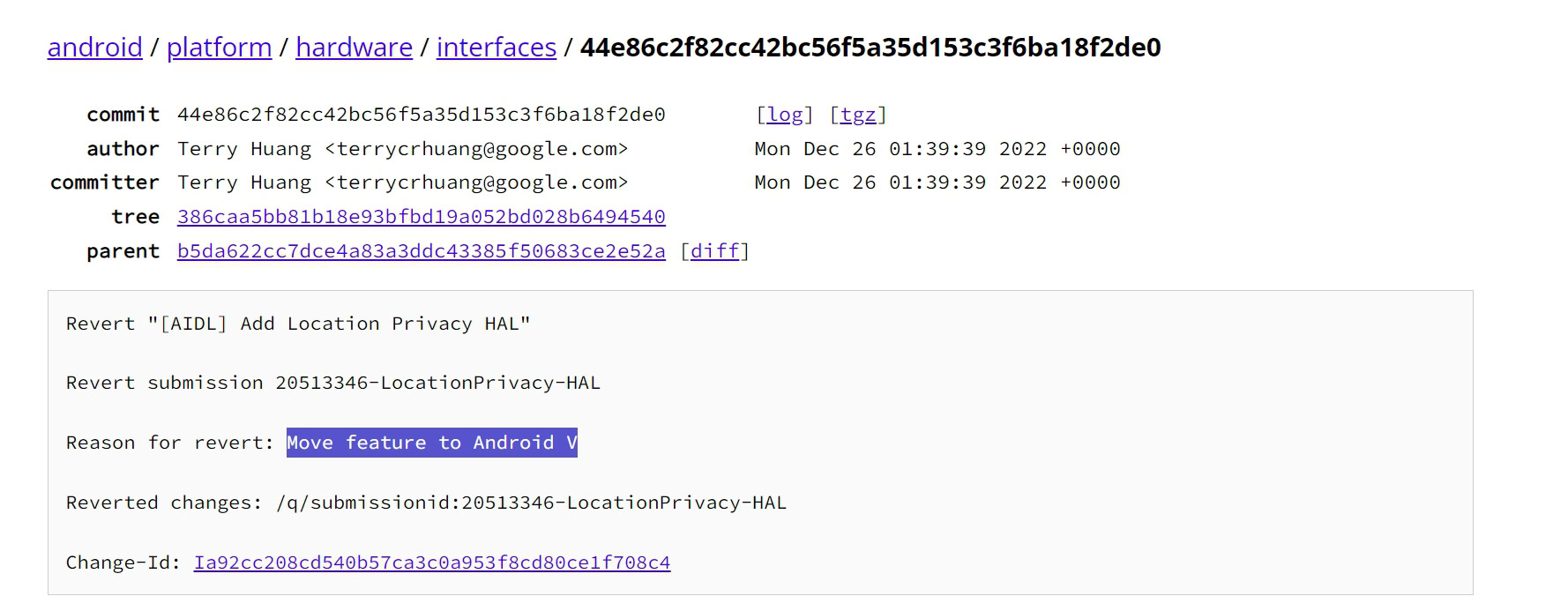
Mishaal Rahman / Android Authority
TL;DR
- Your mobile community can decide your machine’s location utilizing a network-initiated location request.
- Your machine’s privateness settings don’t influence whether or not this request is honored.
- Nonetheless, Android 15’s new location privateness function might block these requests for non-emergency situations.
Your location is likely one of the most delicate items of details about you that an app can accumulate. It might present the place you reside, what folks or companies you go to, and probably what you’re presently doing. That’s why Android presents strong privateness settings to handle which apps can entry your location. Nonetheless, the OS can do little to stop your provider (mobile community) from getting your location. In Android 15, although, the OS would possibly get a strategy to forestall your location information from being despatched to your provider.
The Android OS can simply prohibit or grant location entry to Android apps as a result of these apps have to make use of APIs offered by the OS to get the placement. Nonetheless, the firmware operating on the machine’s mobile radio is a special story. Mobile radios in cell phones are sometimes made by somebody apart from the cellphone’s OEM, they usually typically run proprietary firmware that the Android OS can solely work together with utilizing well-defined {hardware} abstraction layer (HAL) APIs that the radio vendor added help for. Beginning in Android 15, radio distributors will have the ability to add help for Android’s new location privateness HAL, which may inform the radio to not share location information for any non-emergency requests.
In accordance with the GSM customary for location providers, there are a couple of methods to find out your machine’s location. The commonest situation is the Cell Originated Location Request (MO-LR), which is when the machine itself pings the community to get its present location. A Cell Terminated Location Request (MT-LR), however, happens when a 3rd celebration — corresponding to emergency providers throughout a non-emergency name — requests the machine’s location via the community. There’s additionally a Community Initiated Location Request (NI-LR) which is when the mobile community itself triggers the method of figuring out the machine’s location. NI-LR is usually used for important functions the place getting the consumer’s permission won’t be doable or quick motion is required, corresponding to throughout an emergency.
Whereas each MT-LR and NI-LR are sometimes used for emergency situations, consumer privateness settings can affect whether or not the community fulfills an MT-LR. Nonetheless, the identical isn’t presently true for NI-LRs. Units with radios that help Android 15’s new location privateness HAL, nevertheless, will have the ability to prohibit location information from being shared for any non-emergency NI-LRs.
Within the Android supply code for the radio HAL, a brand new API is being carried out to set the placement privateness setting. This API “updates the present consumer setting of sharing the placement information,” which “should be utilized by [the] radio earlier than honoring a network-initiated location request for non-emergency use instances.” Nonetheless, “the radio shall ignore this setting throughout emergency name, emergency SMS, or emergency call-back modes and proceed to supply the placement data to the network-initiated location requests.”

Mishaal Rahman / Android Authority
This API was initially added in a patch to the radio HAL’s supply code in Android 14 QPR2, but it surely was eliminated in a later patch. The explanation given for the API’s removing from Android 14 QPR2 was that the function was being moved to “Android V,” which refers to Android 15 (V is the primary letter within the inner dessert identify for Android 15, ie. Vanilla Ice Cream).

Mishaal Rahman / Android Authority
Provided that this new location privateness function requires help from the radio vendor, it’s seemingly that many gadgets upgrading to Android 15 is not going to help it. We will at the very least anticipate to see Google add help for it in its personal Pixel gadgets, although, on condition that it designs its personal Tensor chipsets. Tensor chipsets are recognized to make use of Exynos modems from Samsung, but it surely’s seemingly that Google has some say in what HAL options the modems help.
Though this new location privateness function will forestall carriers from sending an NI-LR to entry your actual location exterior of emergency situations, it seemingly gained’t forestall them from ever getting your approximate location. Carriers can nonetheless see which cell towers your machine connects to, use the power and angle of your machine’s sign to the tower, after which lookup your machine’s distinctive mobile identifier to find out your basic location. Your location might by no means be personal if you’re related to a mobile community, however at the very least Android 15 will provide you with extra management over when your location is being shared. This function might probably additionally mitigate assaults from “Stingray” gadgets that mimic actual mobile networks to trick your machine into connecting and thus sending information to them.

